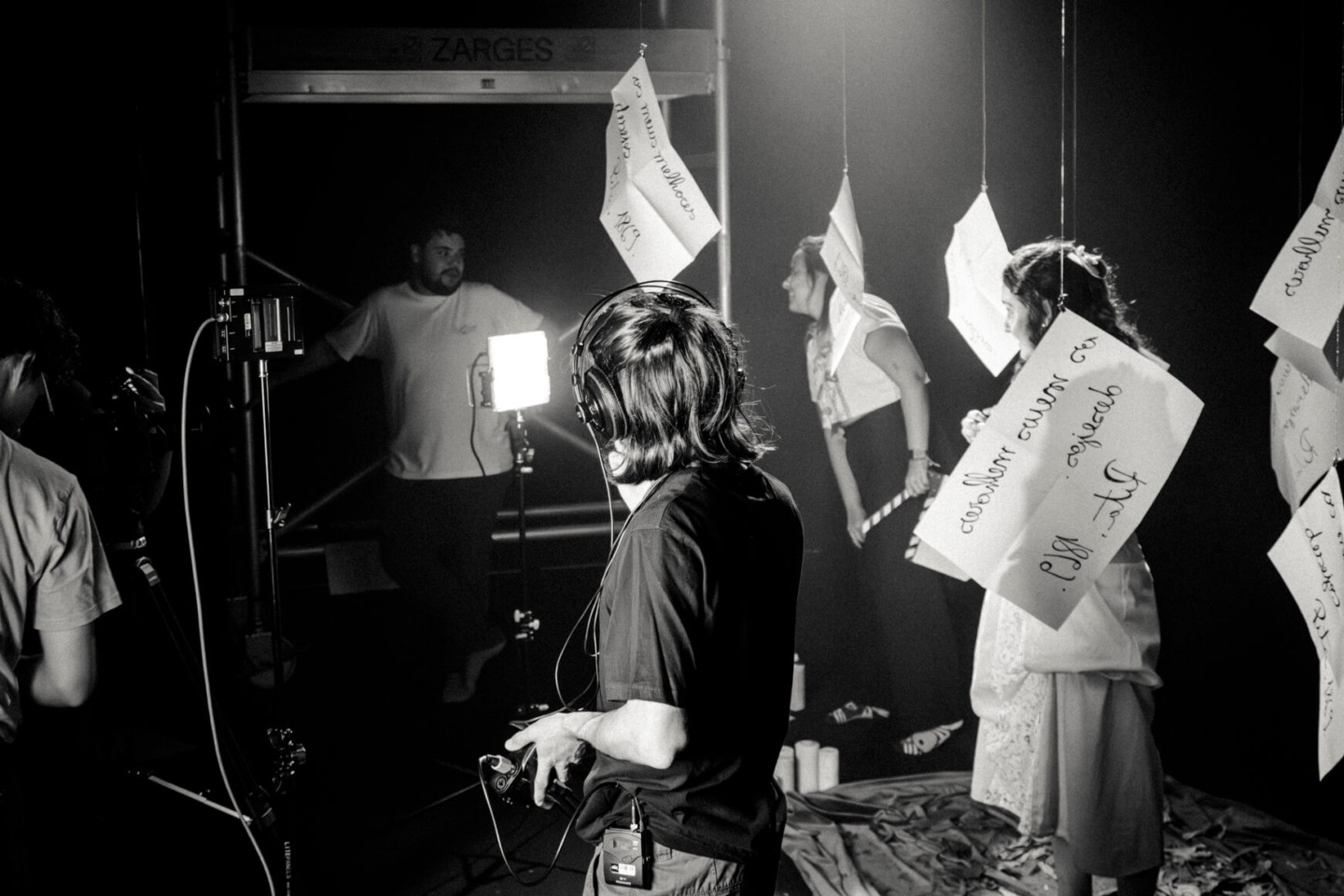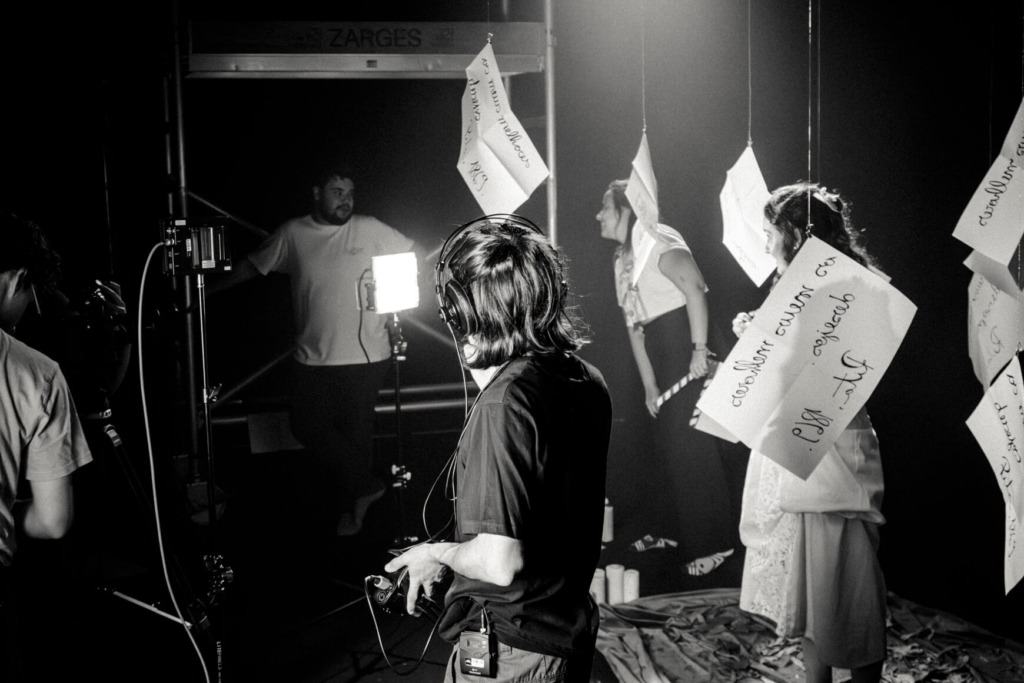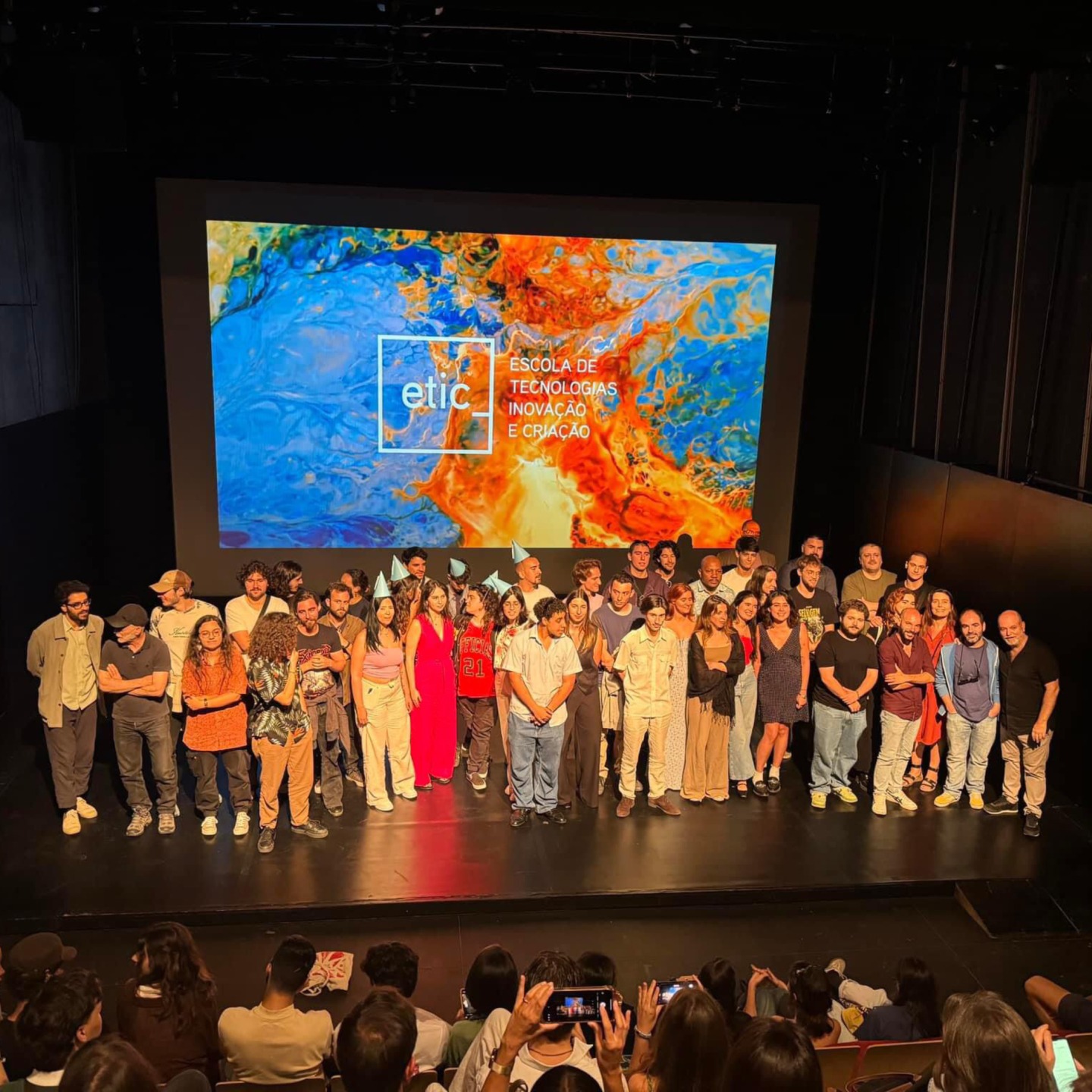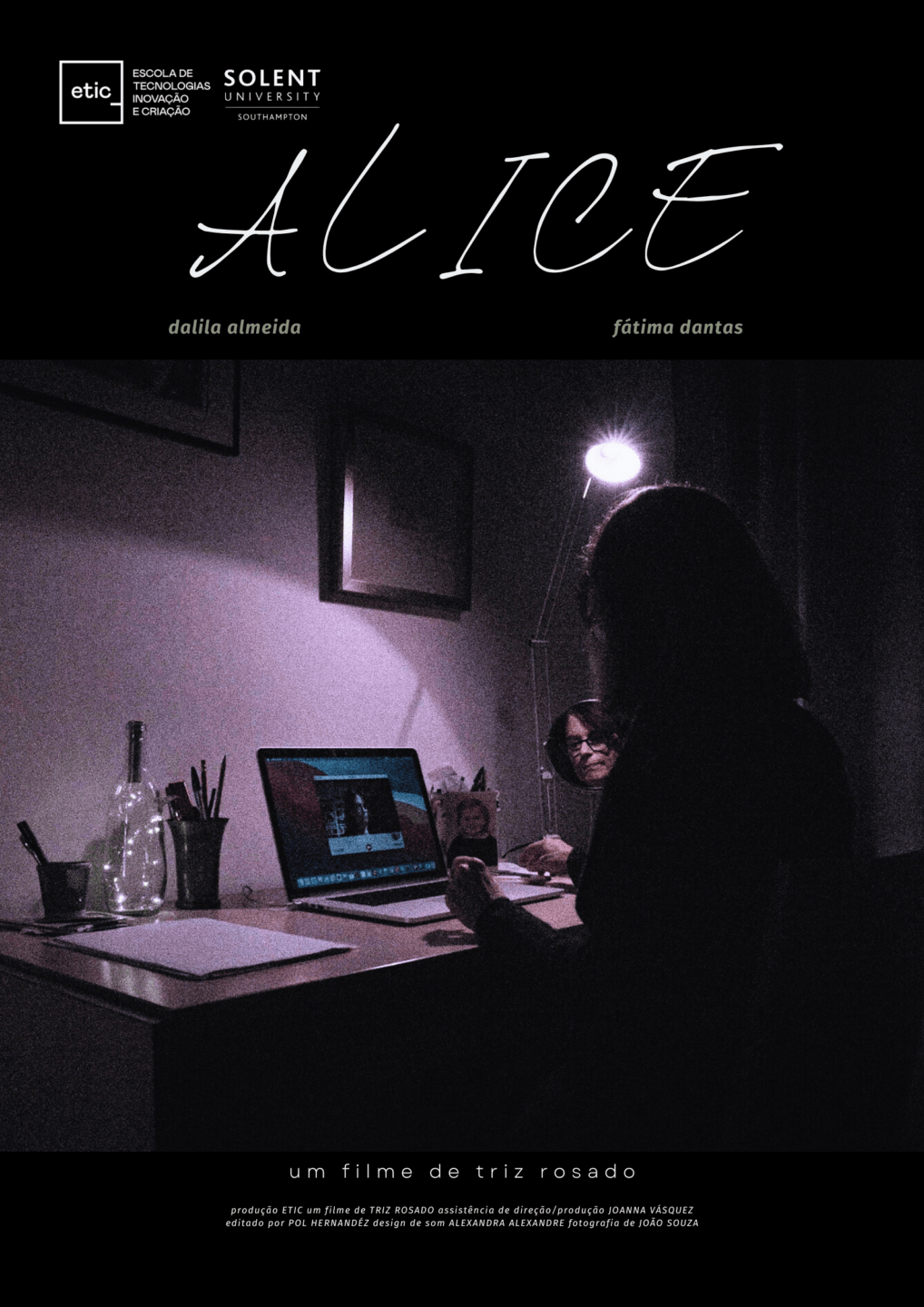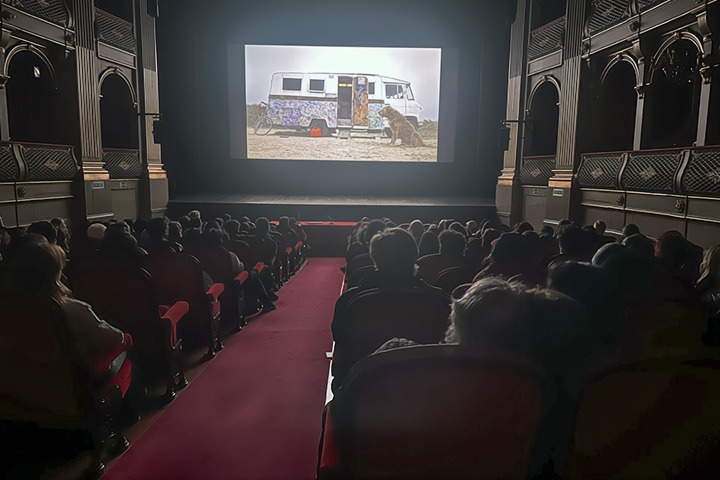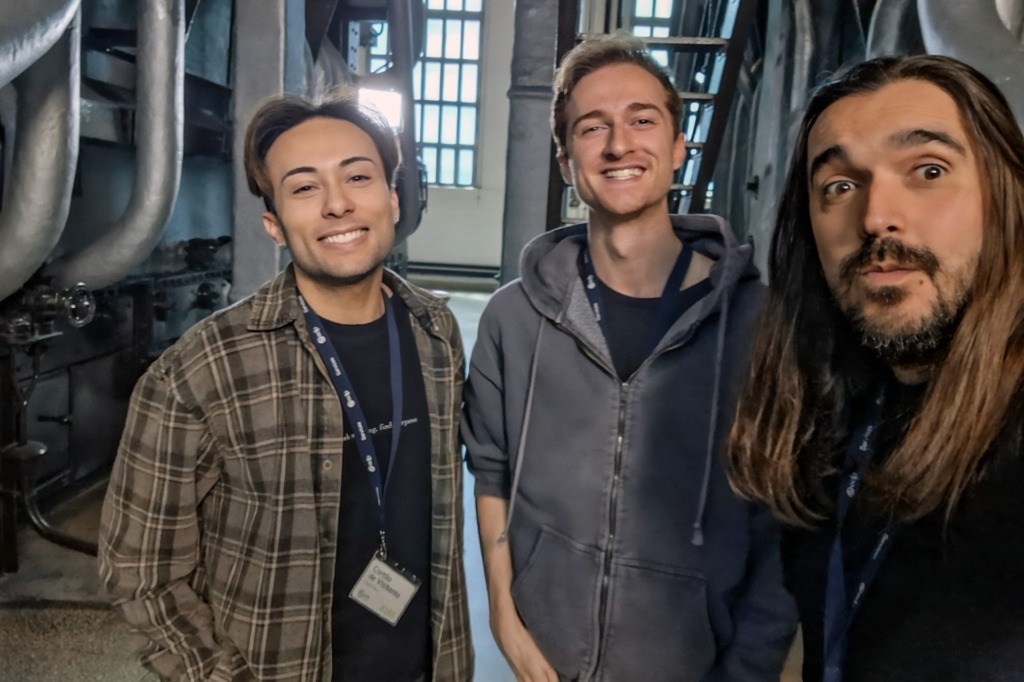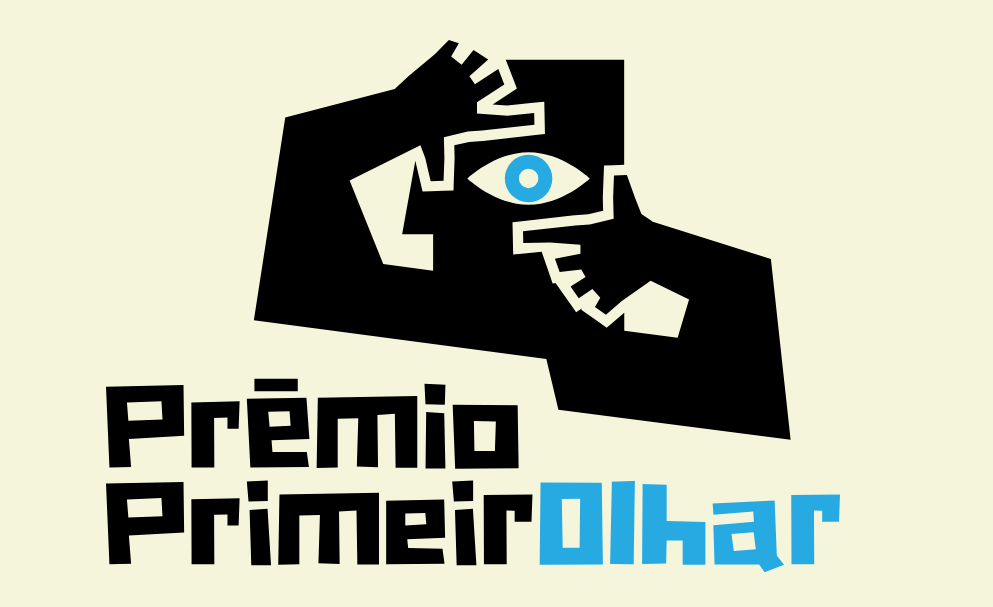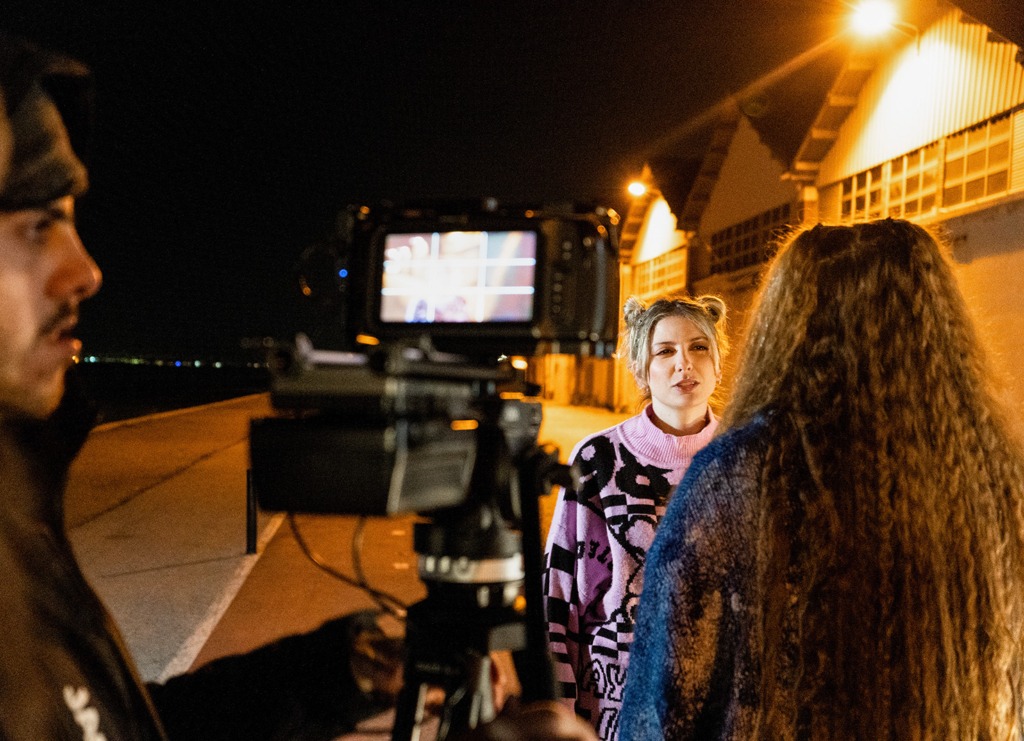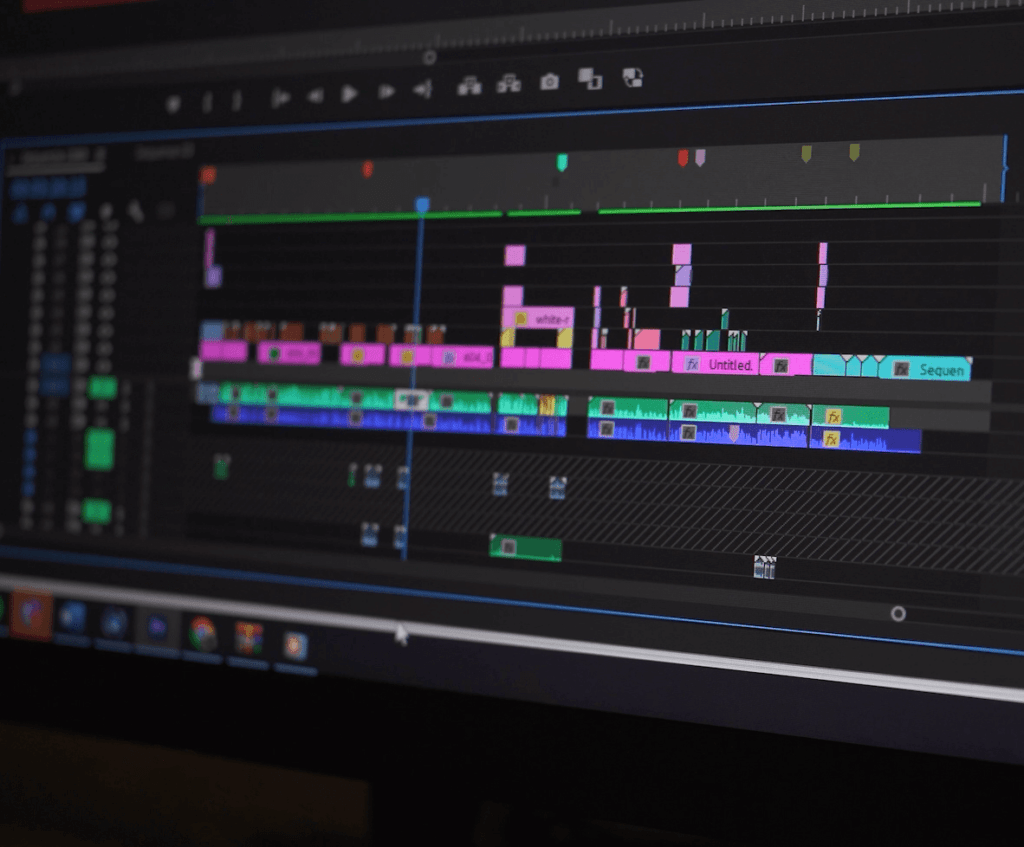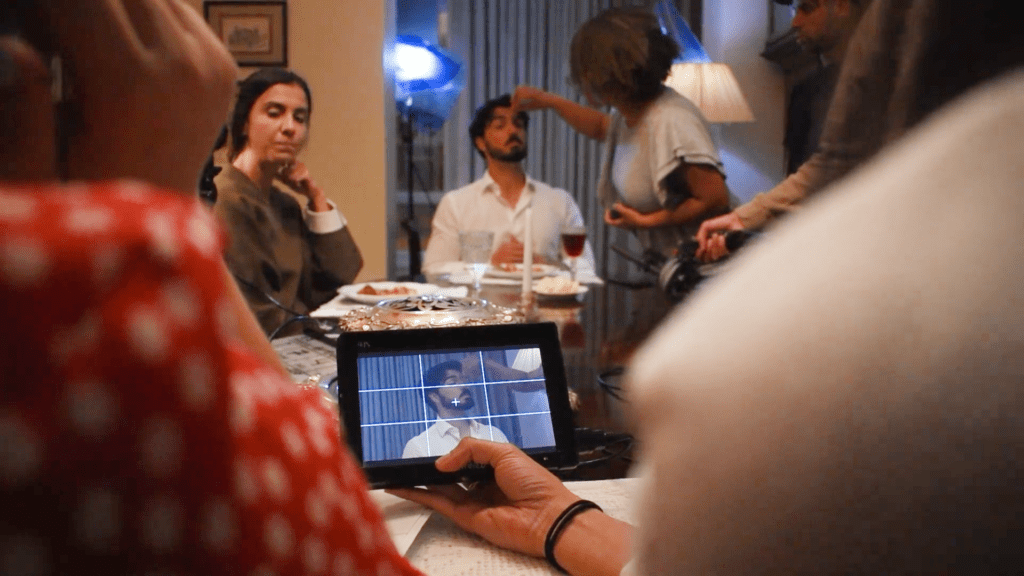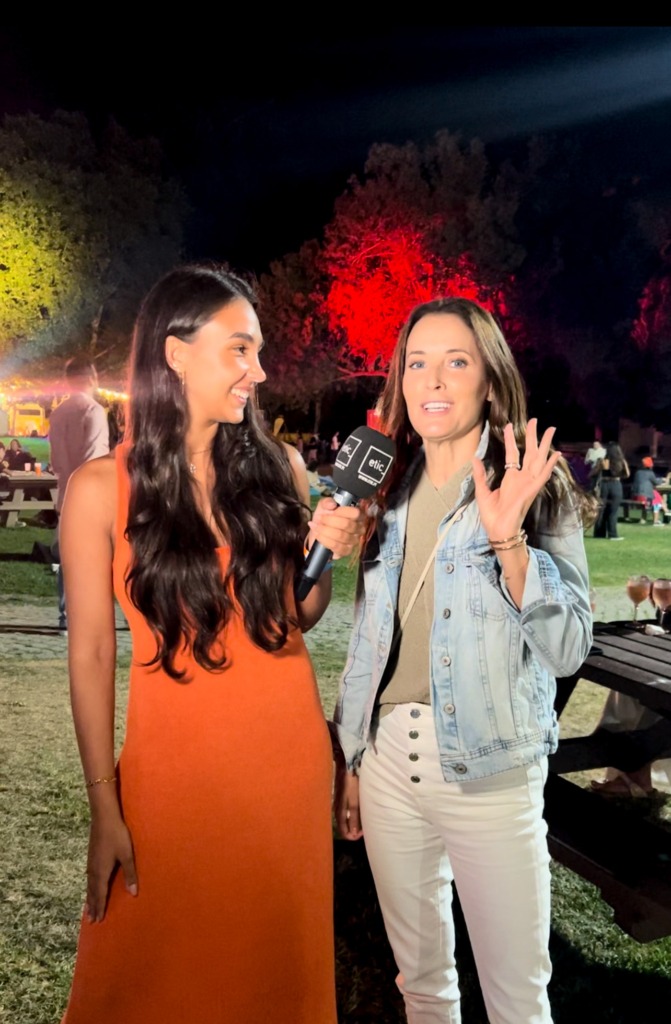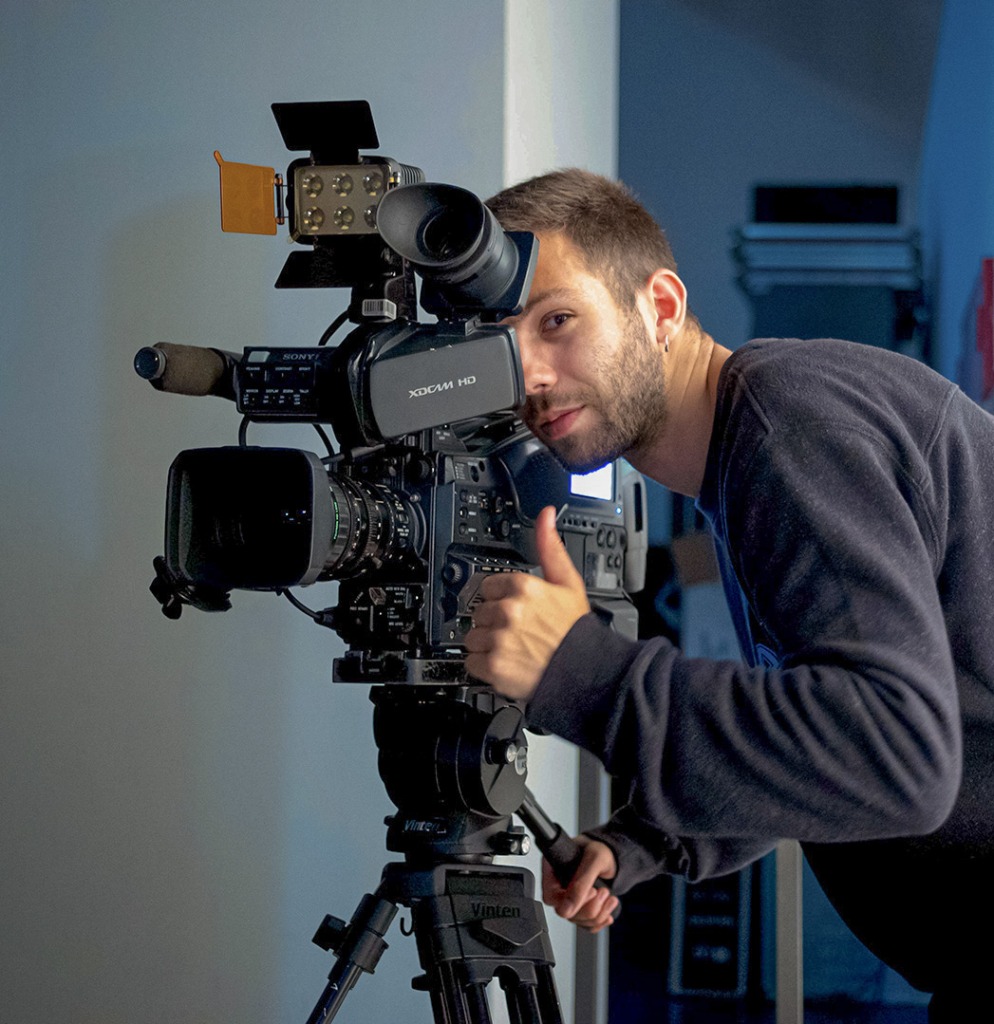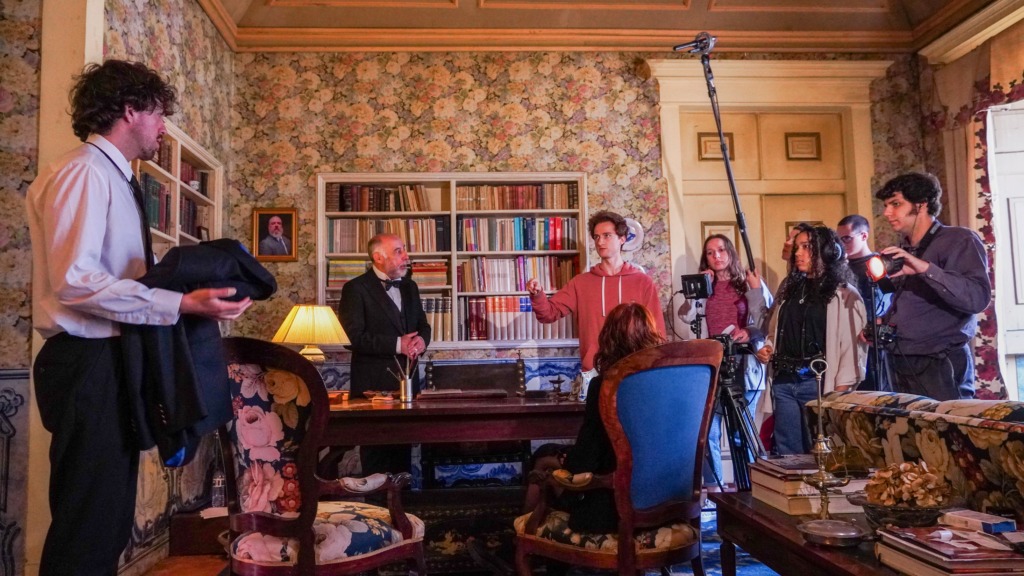PRESENTATION
It is a year of study progression for students who have finished 2 year courses in Film & Television area / Pearson BTEC international certification, and also for other students whose equivalence can be granted. Certified competence in the English language is required.
The course offers an effective combination of research, critical analysis, design and professional practice, and allows the improvement and knowledge of methodologies necessary for an international career.
The area of Film and Television is an extraordinary field of ever-new possibilities for contemporary study and creation and for the production of innovative businesses.
The student can develop the knowledge acquired and expand their creative, technical and professional potential over the course of a year. At the same time, you will become part of a worldwide community of students, accompanied by teachers and guests who share current and future references.
The School’s objective is for student to be prepared to successfully overcome the challenges that lie ahead, promoting relationships with the community, companies and institutions. ETIC encourages student talent to strengthen their relationship with professionals. At the end, the projects are presented at Cinemateca Portuguesa.
GUIDANCE FOR AN INTERNATIONAL CAREER
The student deepens knowledge and skills, both technical and creative, to obtain the necessary preparation for an international career and develop a successful activity in the Cinema and Television industry.
A CREATIVE ENVIRONMENT LINKED TO THE INDUSTRY
ETIC is also recognized for its creative environment and the proximity between students, teachers and staff. There is a close connection with the professional environment that results in partnerships with companies and institutions. Real briefings and creative challenges with professional positioning are part of the curricular projects. The school regularly promotes the possibility for students to participate in events and festivals where they practice, side by side, with the school team and sometimes with experienced professionals and mentors.
WHAT YOU'LL STUDY
Requirements: 240 CATS and English Level B2
Students from other schools whose equivalence can be granted can also enter and attend this 3rd year.
On this module you will analyse and debate social, political and cultural contemporary issues, relating them with the contribution screen has to such analysis and debate. To do so, you will learn how to critically think about concepts and approaches that characterize contemporary culture. You will be challenged to uncover how our identities shape screen culture and are shaped by it, exploring representations and impacts that some topics have in this mutual relation between our contemporary selves and the screen.
You will develop your skills and competences on research applied to these questions present in our cultural context, producing analysis of film and television case studies.
Production, distribution, exhibition and consumption of film and television in the global age is the main theme of this module. You will emerge in contemporary film and television studies, through a range of dynamic topics, debates and screenings considering some of the most important and critical issues that circulate contemporary film and television markets around the world. You will analyse and reflect about globalization and cultural centralization, in a local and global perspective. Promoting reflection and critical thinking, you will be challenged to create an original and independent line of research, considering team and collaborative work in a project for a screen festival in the global age.
This module is about yourself, specifically about your ability to recognize and reflect on the skills you have at this point of your academic life. The goal is to enable you to be capable of deciding the best ways to communicate those skills to a potential employer in the creative industries and beyond.
You will make and present a portfolio that reflects your skills and yourself, promoting your self-awareness and critical thinking approaches to your own work. Your reflections will be important in identifying strengths and weaknesses in a way that can allow you to promote a career plan and develop goals and objectives. You will also learn how to plan, research and share your portfolio looking for professional development and determination of your own career objectives.
This module is the starting point of your Final Major Project. Here you will produce the research base that will support the development of your Final Major Project. You will develop your research skills at the same time you will be challenged to arouse critical and analytical thinking that will turn theoretical concepts and investigation into a practical instrument to develop your project.
You will learn how to conduct research and research methodologies to widen your knowledge and understanding of your chosen subject for the Final Major Project. With the outcomes of this research, through the critical analysis of a wide range of sources, you will determine your own perspective to apply in Final Major Project work.
From the outcomes of Final Major Project Research, in this module you will create your final project. It can be a written or a production-based project (dissertation, script, fiction, documentary, television pilot). This will be the culmination of your journey in the top up year, and should reflect your knowledge, understanding and skills around film and tv from the last three years. This project is a demonstration of critical, creative and professional skills by exploring and deepening the subject of your research, turning it on a practical and technical work, according to film and tv professional practices. You will undertake this project to aim the same goals (such as pitch, publication or production) you can find in the industry.
CERTIFICATIONS
The students will get an ETIC certification. Solent University recognises the 3rd year of ETIC training and grants an equivalence corresponding to the 3rd year in the British educational system (Level 6 – 120 CATS*).
*CATS: Credit Accreditation Transfer System
ETIC is not a higher education institution, and its courses do not award an academically recognized degree in Portugal.
TEACHERS
PEDRO SENNA NUNES
ETIC Course Leader
PEDRO SENNA NUNES
I lead festival and culture programmes linked with cinema, dance, media, performance and technology. I started teaching 25 years ago, and have been at ETIC since 1997. I have worked in the school as a coordinator of the image and sound department and as a creative director for a significant number of years. I currently teach in the film making field – Cinema, Performance and Media degrees. Units taught include ‘Documentary Film, ‘Film Making’, ‘Creative Process’, ‘Body and Technology’, ‘Video Dance’ and ‘Experimental Film’. For many years I co-supervised final film projects, presentations and debates with students in a national and international context. I really like the exercise of shooting and editing images and sounds in a real experimental way. I regularly go to the theatre, contemporary dance and music performances and I dedicate all my free time to my actual research between movement images and performing arts. I love spending time in the countryside and near the ocean, learning more about the aesthetical impact of nature. Essentially, I love travel and discovering the strong details that change my surroundings.
FABRÍCIA VALENTE
Module Leader
FABRÍCIA VALENTE
Fabrícia Valente is a PhD researcher at Architecture of Contemporary Metropolitan Territories – ISCTE, Lisbon. With a degree in Architecture (pre-Bologna Declaration) from Universidade de Évora (Portugal) in 2007, and further education in the fields of Photography (from Instituto Português de Fotografia, Portugal), Video (from CENJOR, Portugal) and Planning and Producing Temporary Exhibitions (from Fundação Eugénio de Almeida, Portugal). Lines of interest and research include the multidisciplinarity of Architecture and its possibilities of interface, namely with Visual Arts, Cinema and Music.
Her Professional activity is divided between curatorship, critique, writing and cultural mediation. Fabrícia was Curator and Head of Programmes for the KAIROS Pavillion (Pavilhão KAIROS) and developed the educational project O Gesto como Tradução (Gesture as Translation) for the Dar Lugar ao Acontecimento programme held in the Architecture and Theatre cycle of the Almada Theatre Festival.
MIGUEL RIBEIRO
Module Leader
MIGUEL RIBEIRO
Lisbon, Portugal. Miguel Ribeiro studied Communication Sciences, at the New University of Lisbon. He joined the team of Doclisboa in 2012 as programmer and programme coordinator. In 2020, he became part of the direction of the festival, which he led until the 2023 edition.
In 2016, Ribeiro founded the production company Filmes do Asfalto, and among others, he co-produced António Um Dois Três (Leonardo Mouramateus, 2017), which had its World Premiere at IFFR – International Film Festival of Rotterdam, its National Premiere at IndieLisboa and was commercially released in Portugal, Brazil, Germany and Austria.
He was a member of the artistic collective Rabbit Hole, an artistic platform for creation, experimentation and curatorship, which presented its production in spaces such as Galeria Zé dos Bois, Teatro do Bairro, Espaço Alkantara, malavoadora, Xposed Festival (Germany), Janela Internacional de Cinema do Recife (Brazil).
Through various collaboration, Ribeiro developed a series of curatorial programmes in the intersection of cinema, performance and visual arts, and he is a regular presence in panels, debates and film festival juries – of which, one can highlight DocumentaMadrid (Spain), CPH:DOX (Denmark), Mar del Plata (Argentina), Thessaloniki (Greece), Jihlava (Czech Republic), or Janela Internacional de Cinema do Recife (Brazil).
He is part of the board of Apordoc – The Portuguese Documentary Association since 2016. This association is responsible for the organization of Doclisboa, Doc’s Kingdom Seminar, the educational project abcDoc, among other projects for the support, promotion and exhibition of documentary film.
In the end of 2023, Miguel Ribeiro joined the team of Casa do Comum (a new interdisciplinary cultural venue in Lisbon) as programmer and project coordinator.
MIGUEL MARIANO
Module Leader
MIGUEL MARIANO
Miguel Mariano is Co-founder and Film Critic of the website C7nema.net. He graduated from the Film Studies Course at Solent University, a partner of ETIC on the BA Cinema Course.
He has 25 years of experience in the field of cinema, television and video recording and editing in Portugal and abroad (Spain, Netherlands and United Kingdom).
17 years ago started teaching at several schools in Porto, Algarve and Lisbon, namely ETIC. Is a Trainer certified in Black Magic Da Vinci Resolve.
He was Director, Image Operator and Video Editor creating products for brands such as Xutos&Pontapés, Benfica, Sporting, Clube dos Criativos, NATO, União European, Olympic Committee, Delta Cafés, MEO, Web Summit, Fidelidade Seguros and Caixa Geral Depósitos among many others.
Coordinator of the Dance Film “A Luz da Razão”, selected for 4 Festivals Cinema, namely the InShadow Festival and the Mykonos Biennale and winner of the Festival, Portugal Indie Film Festival. He has a huge passion for teaching young future professionals to join his field of choice and consolidate your vision, voice and presence in the world of cinema and television that you are so passionate about.
FRANCISCO MERINO
Module Leader
FRANCISCO MERINO
I graduated in Communication Sciences in 1998, and, since then, I have worked in education as well as in media production, mainly for Television. I teach Production, and a variety of Project and Workshop courses at the University of Beira Interior, mostly in the Film Undergrad degree, but also in the master’s of Multimedia, Journalism and Digital Games Design. I have been, for over ten years, the head of Film Production at this University and, since 2016, I am the Coordinator of the Film Undergrad Course. I obtained my PhD with a thesis about Transmedia Storytelling, focused on the key role that movies can play within a transmedial structure or, in a broader sense, within a media ecosystem shaped by Cultural Convergence. Digital Storytelling as thus became a key feature of my research and teachings, from interactive fiction to expanded cinema, even though I never abandoned my former research subjects, that included television fiction and film production. I favour a multidisciplinary approach that combines traditional media production techniques with hypermedia and transmedia frameworks and tools.
NÉLIA CRUZ
Module Leader
NÉLIA CRUZ
Nélia Cruz holds a PhD in Literature and Culture (“Screenwriting as a cultural practice: the screenwriter gaze”) from the University of Lisbon. She is Specialist in Audiovisual and Multimedia Communication by IPLisboa, IPLeiria, IPPorto. Has worked as a TV Producer in Rádio e Televisão de Portugal (RTP) and also as a Production Director and Creative Director in independent film production (Zepelin Filmes and Sparkle Animation). Her research interests include screenwriting studies and audiovisual narratives, having been invited, as a speaker, to several conferences on these subjects. She is an investigator in English Studies at the University of Lisbon (CEAUL), where she produces work related with memory and nostalgia; and in the Centro de Literaturas e Culturas Lusófonas e Europeias (CLEPUL) where the project 25/S Television Studies, Communication, Culture and Aesthetics of Audiovisual Arts is being developed with her coordination. She is a screenwriter and a scriptwriting teacher having written, among other works, the awarded short film The Giant. She is currently developing the animation feature film Melpomina (supported by ICA for writing and development 2020)
RITA JORGE
Module Leader
RITA JORGE
Creative and resourceful PhD student of Art Studies, with two masters in screenwriting and directing, lecturing in the field of writing for film. With a background in script and journalistic photography, wishes to keep pushing the envelope, not only in her teaching and academic research, but also in the different projects she is involved in. Delving lately into contemporary art, creative writing, and even psychoanalysis, looks to reflect upon the close relationship between theory and practice.
JONATHAN PLUMMER
EMPLOYABILITY
Film, video, television, and advertising producers;
• Television, thematic channels, and internal television networks;
• Image and sound post-production departments of companies and institutions;
• Camera operators, image assistants, and sound assistants;
• Production assistants, directors, and stage managers;
• Video post-producers and editors;
• Script supervisors and assistants in scriptwriting and revision;
• Creation and management of one’s own business in various areas of film and audiovisual production.
ERASMUS+ AND INTERNSHIPS IN COMPANIES
At the end of the course, and based on their performance, students may apply for an international internship through the Erasmus+ Programme (content in Portuguese).
They may also apply for internships in companies via the Professional Integration Department by contacting estagios@etic.pt.
EQUIPMENT
ETIC has top technological resources that students have access to for curricular work and personal projects. You can make school your workspace, your studio, the place where you can create freely.
The students have access to camera and lighting material, highlighting Sony FX6 cameras with lenses: 16-35mm, 24-70mm, 70-200mm and Blackmagic Ursa with lens: 24mm, Manfrotto and Cartoni tripods, Zhiyun Crane gimbal 2, KinoFlo, Aputure and Arri lighting kits, Zoom, MixPre 3 audio recorders, Sanken, Sennheiser and Rode microphones, and a television studio where tests and filming can be carried out.
APPLICATION
REQUIREMENTS:
- 240 CATS;
- English Level B2 Certificate proven by one of the following tests: DUOLINGO minimum 115 (95 in all components), IELTS minimum 6.0 (5.5 in all components) or TOEFL IBT 80 (20 in all components);
- Letter of motivation with the reasons why you are applying;
- Presentation of portfolio or showreel;
- CV.
WHAT SHOULD I DO TO START MY APPLICATION?
- Fill out the form on the course page I am interested in by clicking in the APPLICATION button.
WHAT ARE THE NEXT STEPS?
You will receive a confirmation email with information about:
- Schedule an interview;
- Visit to school (optional).
We invite you to get to know the creative and family environment that exists at the School, through an accompanied visit to the studios, ateliers and training rooms. To schedule a visit, click here
Applications from January to August.
PAYMENT CONDITIONS
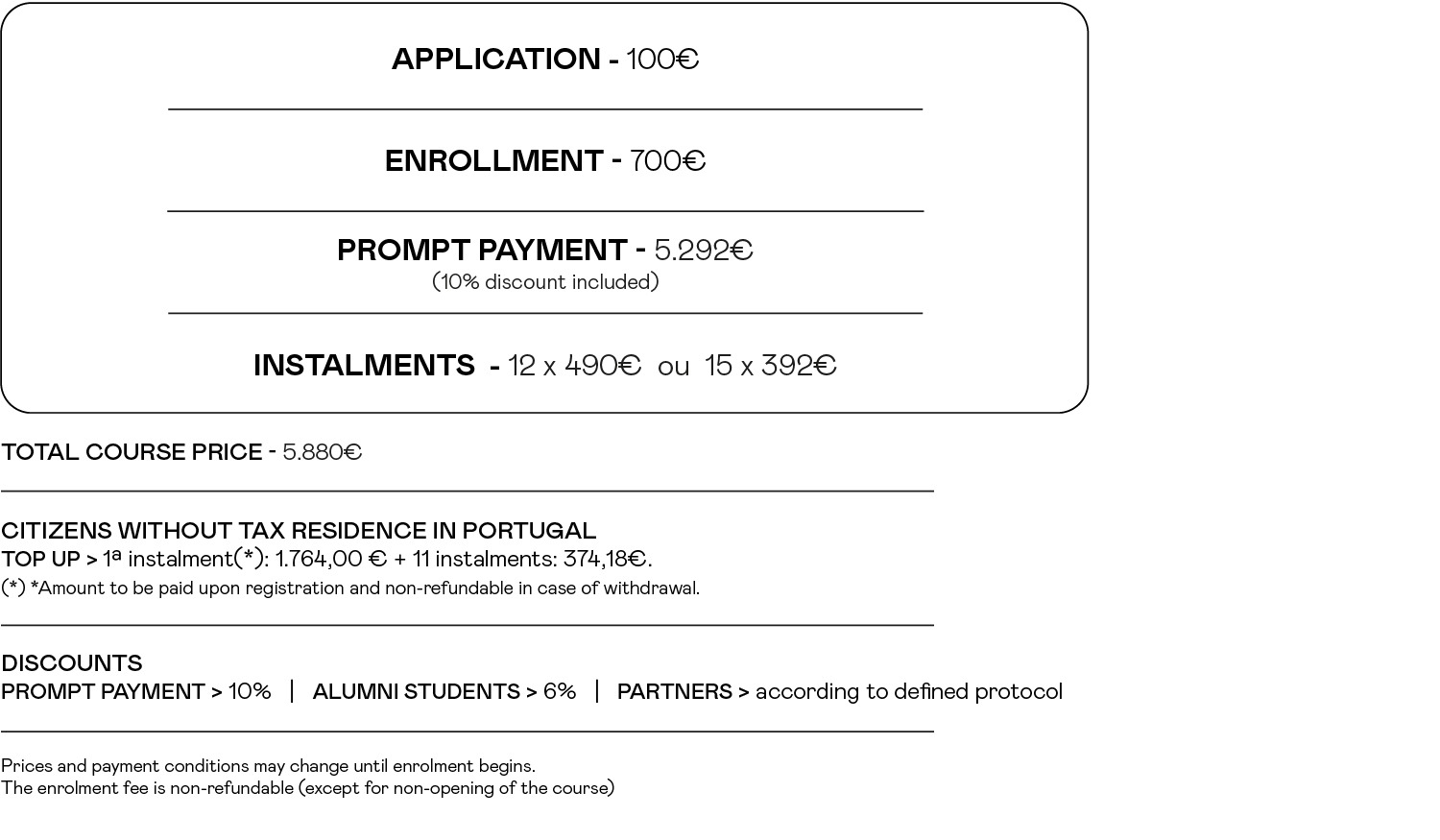
There are several financing programs in different banking institutions: Caixa Geral de Depósitos, Santander, Banco CTT, BPI, among others.
GENERAL CONDITIONS
The opening of each course/class/schedule is subject to a minimum number of registrations.
Teaching is face-to-face and project based. The course program includes classes without a teacher to develop autonomous exercises and design practices. Autonomous or project work is important for the student’s progress in their learning. Teachers can request the development of work outside the established class hours. Classes may occasionally be scheduled outside of established times, for example to respond to projects that require this flexibility, to meet project-specific equipment needs, to respond to exercises carried out in a real context with partners, or for any other reason that supports the better achievement of the programme.
Specific technical classes and/or workshops can take place on Saturdays.
The duration of each class may vary depending on its theoretical or practical nature.
The class can be divided into groups for better learning and the development of projects and subjects.
The curriculum and the list of course teachers may be changed for reasons of pedagogical suitability or for reasons of force majeure.
For more information contact us.
